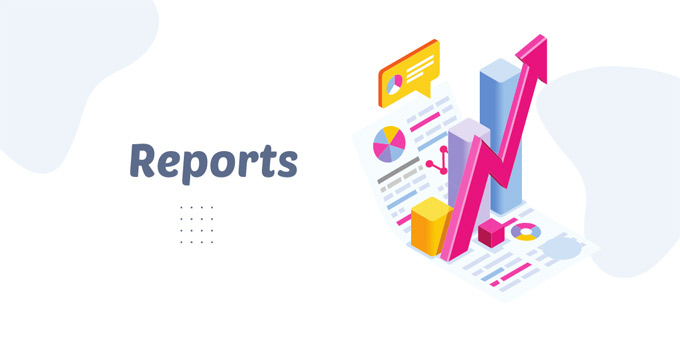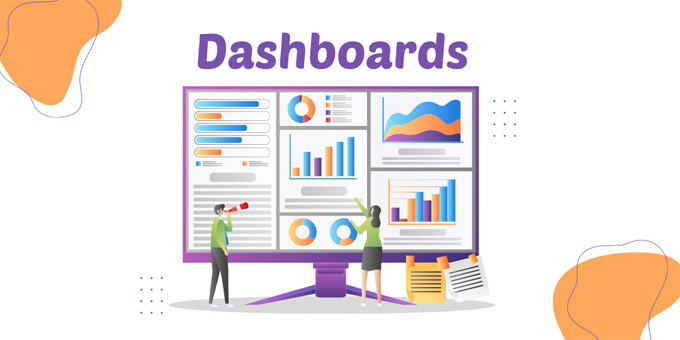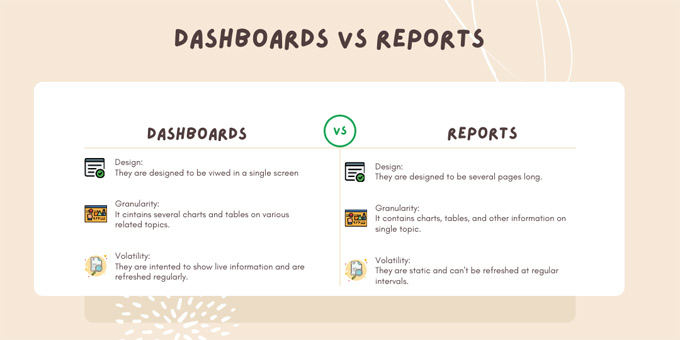Companies have a lot of data to manage, and they need to convert it into useful information. Data is essential for organizations to grow and thrive. No matter what industry, understanding the ecosystem, clients, and stakeholders can help companies make better decisions and act more decisively. The dashboard and the report are the most common methods for sharing data by business users.
What is the difference? They are often interchangeably by many organizations, but they overlook the differences between them. Knowing what each one brings to the table will help you choose which one is best for your company.

Reports are static documents that include data in both text and table form. Sometimes they include basic charts and graphs, but they are designed to highlight specific data sets or raw numbers. They are typically sent to stakeholders regularly, so data is not always live. They have the advantage of allowing the author to create full narratives from data and optimize the presentation. They also feature data that has been cleaned, sorted, and parsed.

Data dashboards allow you to measure, analyze, and extract business insight from critical datasets. These dashboards also present information in an interactive, intuitive, visual, and visually appealing manner. Dashboards can be made as narrow or as broad as required, which allows organizations to create multiple dashboards to better organize their analytics.
These give a comprehensive overview of the company's departments, goals, and initiatives as well as its processes and projects. These key performance indicators (KPIs), provide valuable insight that can be used for growth and improvement.

Now that you better understand what distinguishes reports from dashboards, it should be easy to anticipate what scenarios call for which.
A dashboard is created when you want to give high-level insights into complex systems, especially for executives or other high-ranking people. These individuals often have to make quick decisions and dashboards can speed up the time it takes to see the data. Dashboards can also be used as investigative tools. They are useful for anyone who is in a diagnostic or management role.


